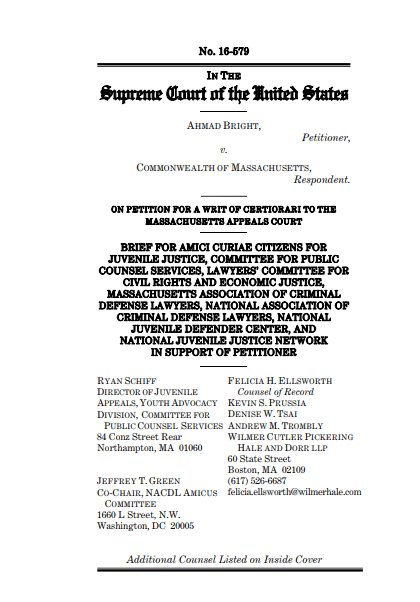
Summary of Argument
As life experience, social science, and this Court’s jurisprudence make clear, children are fundamentally different than adults. For that reason, this Court has held that the Eighth Amendment prohibits juvenile offenders from receiving mandatory sentences of life without parole. Miller v. Alabama, 132 S. Ct. 2455, 2469 (2012). Before sentencing a juvenile offender irrevocably to a lifetime in prison, the Eighth Amendment requires an individual evaluation that accounts for the diminished culpability and heightened rehabilitative capacity of youth. Id.
At present, this Court’s precedents permit mandatory sentences of life with the possibility of parole for juvenile offenders, but prohibit mandatory sentences of life without the possibility of parole for juvenile offenders. Amici contend, however, that no meaningful distinction exists in practice between these two types of mandatory punishments. This Court has assumed that the availability of parole mitigates the disproportionate impact of a life sentence by preserving some prospect of eventual release for juvenile offenders. See Montgomery v. Louisiana, 136 S. Ct. 718 (2016). But as amici explain here, the modern parole system provides no meaningful opportunity for rehabilitation-based release to juvenile offenders sentenced to life with parole. Consequently, for both constitutional and practical purposes, a mandatory sentence of life with parole is effectively the same punishment as a mandatory sentence of life without parole.
This Court should grant certiorari to resolve this next logical question in juvenile-sentencing jurisprudence: whether the mere availability of parole resolves the serious constitutional violation created by a state’s imposition of mandatory life sentences on juvenile offenders. In light of the defects of the modern parole system, amici urge this Court to hold that the Eighth Amendment forbids the imposition of any mandatory life sentence, including one with the possibility of parole, on juvenile offenders.